Fixed prosthesis
Regain Your Smile: The Advantages of Fixed Prosthesis
Fixed prosthesis
Your smile is one of the first things people notice about you. It can convey warmth, friendliness, and confidence. However, if you have missing or damaged teeth, it can be challenging to feel self-assured and smile without hesitation. Fixed prostheses are an excellent way to restore your confidence and regain your smile. They are a type of dental prosthesis that is designed to replace one or more missing teeth permanently. This type of prosthesis is attached to your existing teeth or dental implants, providing a stable and secure fit. In this post, we’ll talk about the advantages of fixed prostheses, including their durability, functionality, and natural-looking appearance. We’ll also cover the different types of fixed prostheses available, including bridges, crowns, and implant-supported bridges. So if you’re looking for a way to regain your smile and boost your confidence, read on to learn more about fixed prostheses.
1. Introduction to fixed prosthesis
A bright and confident smile can make a world of difference in one’s self-esteem and overall well-being. However, tooth loss or damage can significantly impact our ability to smile freely. Fortunately, advancements in dental technology have provided us with a solution: fixed prosthesis.
Fixed prosthesis, also known as dental implants, is a remarkable dental treatment that replaces missing or damaged teeth with artificial teeth that look, feel, and function like natural teeth. Unlike removable dentures, fixed prosthesis is permanently attached to the jawbone, providing exceptional stability and durability.
This innovative dental procedure involves surgically placing titanium implants into the jawbone, which serve as artificial tooth roots. These implants fuse with the surrounding bone through a process called osseointegration, creating a strong foundation for the replacement teeth.
The replacement teeth, known as crowns, are custom-made to match the color, shape, and size of your natural teeth. They are meticulously crafted to seamlessly blend in with your existing teeth, ensuring a natural and aesthetically pleasing appearance.
One of the significant advantages of fixed prosthesis is its ability to restore your ability to chew and speak properly. With this treatment, you can enjoy your favorite foods without any discomfort or restrictions. Additionally, fixed prosthesis eliminates the worry of dentures slipping or falling out while speaking, giving you the confidence to engage in social interactions without any hesitation.
Moreover, fixed prosthesis provides long-term benefits for oral health. By filling the gaps left by missing teeth, it prevents neighboring teeth from shifting out of position, maintaining the integrity of your natural bite. This helps to prevent further dental issues such as misalignment, jaw pain, and the potential loss of additional teeth.
Another advantage of fixed prosthesis is its convenience and ease of maintenance. Unlike removable dentures, there is no need for messy adhesives or nightly removal. With proper oral hygiene practices, including regular brushing and flossing, fixed prosthesis can last for many years, providing a durable and functional solution for your dental needs.
In conclusion, fixed prosthesis offers numerous advantages for individuals seeking to regain their smile and improve their quality of life. From its natural appearance to its stability and functionality, this dental treatment has revolutionized the way we restore missing or damaged teeth. Consult with your dentist today to explore how fixed prosthesis can transform your smile and bring back your confidence.
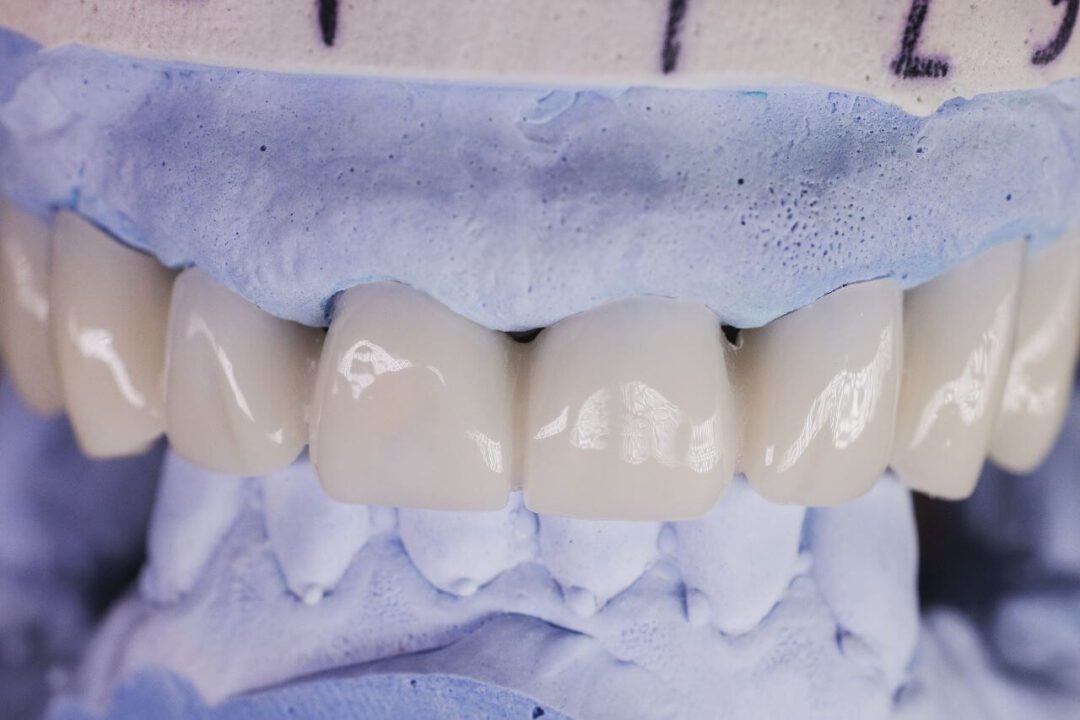
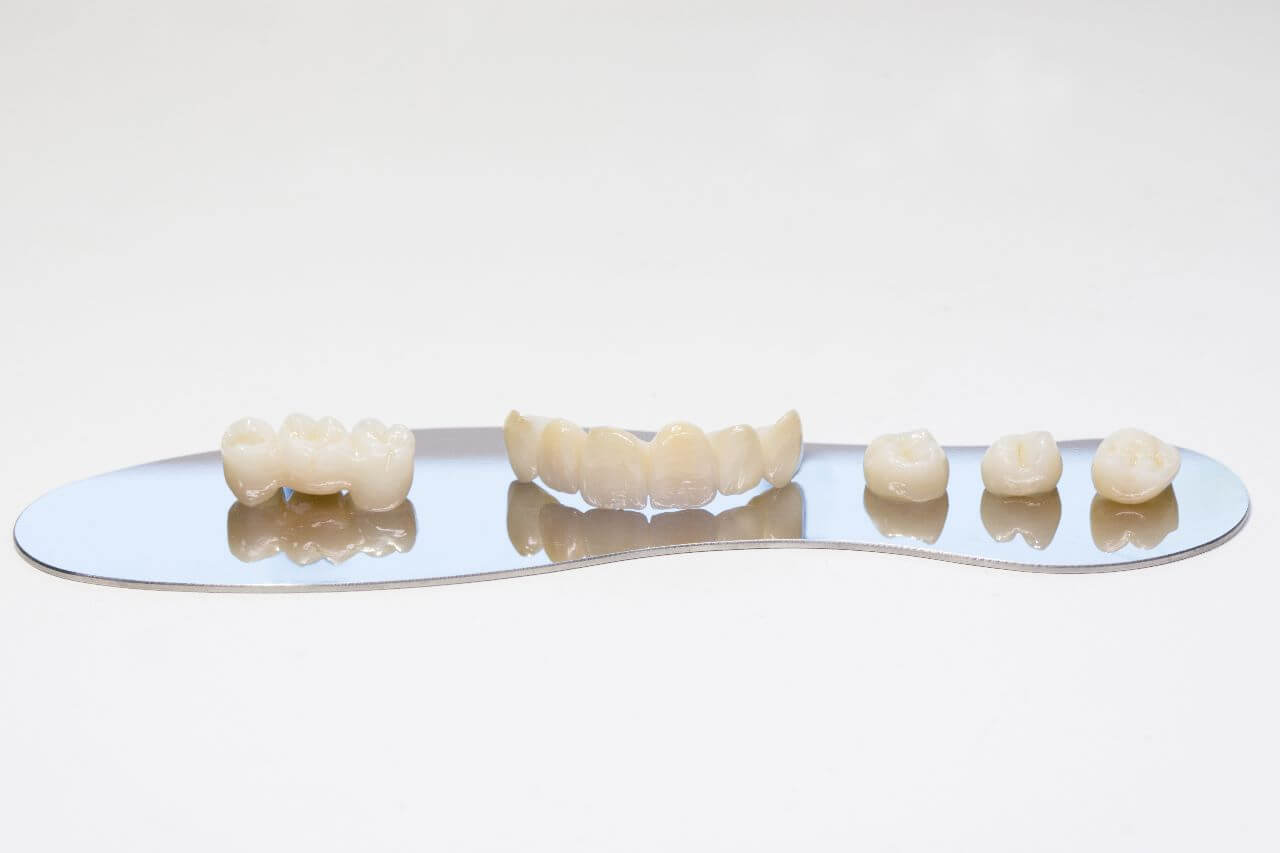
2. Understanding the different types of fixed prosthesis
When it comes to restoring a smile, fixed prosthesis is a popular and effective option. Fixed prosthesis refers to dental restorations that are permanently attached to existing teeth or dental implants. It offers a range of benefits, but before diving into its advantages, it’s crucial to understand the different types available.
1. Dental Crowns: Dental crowns are one of the most common types of fixed prosthesis. They are custom-made caps that cover the entire surface of a damaged or decayed tooth, restoring its shape, size, and strength. Crowns can be made from various materials such as porcelain, metal, or a combination of both, depending on the patient’s preference and needs.
2. Dental Bridges: Dental bridges are used to replace one or more missing teeth. They consist of artificial teeth, called pontics, that are anchored in place by dental crowns on the adjacent teeth. Bridges not only fill the gaps in your smile but also help maintain the alignment of surrounding teeth and prevent potential oral health issues.
3. Implant-Supported Prosthesis: This type of fixed prosthesis involves the use of dental implants as anchors for the restorations. Dental implants are titanium posts that are surgically placed into the jawbone, providing a strong and stable foundation. Implant-supported prosthesis, such as implant-supported crowns or bridges, offer superior durability, functionality, and aesthetics.
Each type of fixed prosthesis has its own advantages and considerations, including cost, durability, and maintenance requirements. Consulting with a qualified dentist will help determine the most suitable option based on your specific oral health condition and desired outcome.
Regardless of the type chosen, opting for a fixed prosthesis can significantly improve not only your smile but also your oral health and overall well-being. With proper care and regular dental visits, the advantages of fixed prosthesis can be enjoyed for many years, bringing back your confidence and restoring your smile to its full potential.
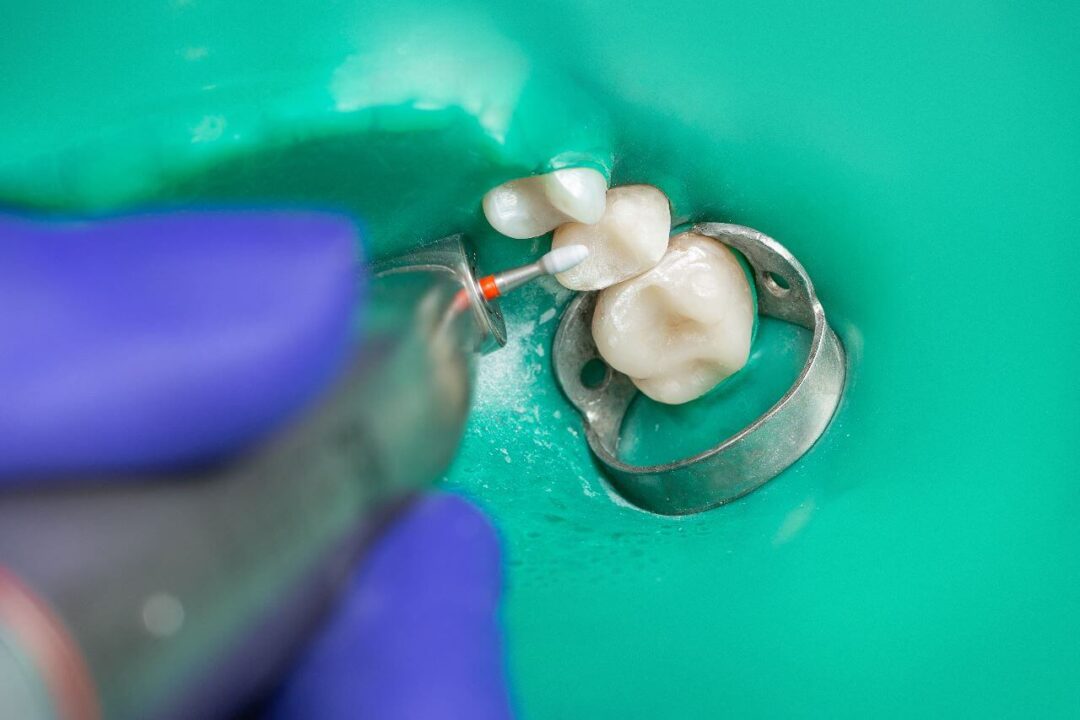
3. Advantages of fixed prosthesis over removable options
Fixed prosthesis, also known as dental implants, offer a multitude of advantages over removable options when it comes to regaining your smile. These permanent solutions not only improve the appearance of your teeth but also provide a range of functional benefits that can greatly enhance your quality of life.
One of the key advantages of fixed prosthesis is their stability. Unlike removable options such as dentures, fixed prosthesis are securely anchored into the jawbone, creating a strong foundation that mimics the natural tooth structure. This stability allows for a more comfortable and secure fit, eliminating worries of slippage or discomfort while speaking or eating.
Furthermore, fixed prosthesis offer superior aesthetics. These prosthetic teeth are custom-made to match the natural color, shape, and size of your existing teeth, resulting in a seamless and natural-looking smile. The use of advanced materials and technology ensures that the prosthesis blend seamlessly with your remaining teeth, providing a cosmetically appealing result.
In addition to the aesthetic benefits, fixed prosthesis also promote better oral health. Unlike removable options, which can trap food particles and bacteria underneath, fixed prosthesis are easy to clean and maintain. With proper oral hygiene practices, such as regular brushing and flossing, you can ensure that your dental implants remain in optimal condition, reducing the risk of gum disease and other oral health issues.
Another advantage of fixed prosthesis is their longevity. With proper care and regular dental check-ups, dental implants can last a lifetime. This makes them a cost-effective option in the long run, as they eliminate the need for frequent replacements or adjustments associated with removable options.
Overall, fixed prosthesis offer numerous advantages over removable options. From improved stability and aesthetics to better oral health and longevity, these permanent solutions provide a reliable and long-lasting way to regain your smile and restore your confidence. Consult with a qualified dental professional to determine if fixed prosthesis are the right choice for you and take the first step towards achieving a beautiful and functional smile.
4. Improved functionality and chewing ability
One of the key advantages of fixed prosthesis is the significant improvement in functionality and chewing ability it offers. Missing teeth can greatly impact a person’s ability to eat and chew properly, leading to difficulties in enjoying certain foods and potentially affecting overall nutrition.
With fixed prosthesis, such as dental implants or implant-supported bridges, individuals regain the ability to bite, chew, and eat with confidence. The prosthetic teeth are securely anchored in the jawbone, providing stability and strength similar to natural teeth. This allows for a more efficient and comfortable chewing experience, enabling individuals to enjoy a wide range of foods without restrictions.
Moreover, improved chewing ability has additional benefits beyond just enjoying meals. Properly chewing food aids in digestion, promoting better nutrient absorption and overall gastrointestinal health. When teeth are missing or compromised, the chewing process is often compromised as well, leading to potential digestive issues and discomfort.
Fixed prosthesis not only enhances the functionality of the oral cavity but also contributes to overall well-being. By restoring the ability to chew effectively, individuals can feel more confident and comfortable in their daily lives, enjoying a varied diet and maintaining optimal nutrition. This aspect of fixed prosthesis is crucial in improving the quality of life for individuals seeking to regain their smile and oral functionality.

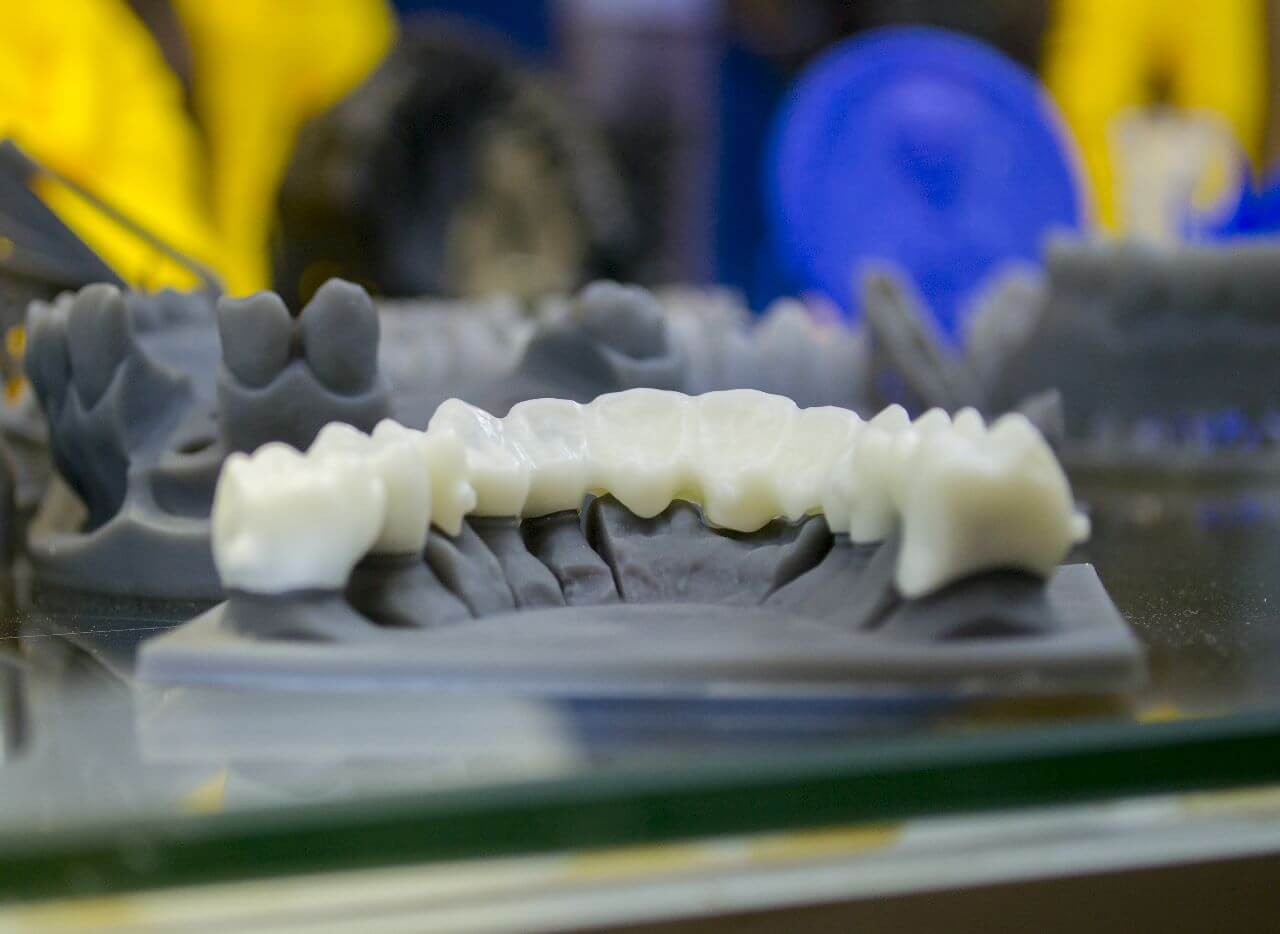
5. Enhanced aesthetics and confidence
One of the most significant advantages of fixed prosthesis is the enhancement of aesthetics and confidence. Missing teeth can have a negative impact on a person’s appearance, causing self-consciousness and a reluctance to smile or engage in social situations. However, with fixed prosthesis, individuals can regain their smile and restore their confidence.
Fixed prosthesis, such as dental implants or bridges, are designed to closely resemble natural teeth in both appearance and function. They are custom-made to fit seamlessly with the patient’s existing teeth, creating a harmonious and natural-looking smile. The prosthetic teeth are carefully crafted to match the color, shape, and size of the surrounding teeth, ensuring a seamless integration.
With a complete and aesthetically pleasing smile, individuals feel more confident in their appearance. They no longer have to worry about gaps, spaces, or discoloration caused by missing teeth. This newfound confidence can have a positive impact on various aspects of life, including personal relationships, professional opportunities, and overall self-esteem.
Furthermore, fixed prosthesis provides stability and durability, allowing individuals to enjoy their favorite foods without restrictions. Unlike removable dentures, which may shift or become loose during eating or speaking, fixed prosthesis remains securely in place, providing a natural bite and improved chewing ability. This allows individuals to enjoy a diverse diet and maintain proper nutrition, leading to overall better oral and systemic health.
In addition to the aesthetic benefits, fixed prosthesis also helps to preserve the structure of the jawbone. When a tooth is lost, the surrounding bone may begin to deteriorate over time. This can lead to a sunken appearance and further dental complications. However, with fixed prosthesis, the implant or bridge acts as a replacement tooth root, stimulating the jawbone and preventing bone loss.
Overall, the enhanced aesthetics and confidence gained from fixed prosthesis can significantly improve an individual’s quality of life. Not only does it restore the beauty of their smile, but it also provides the functionality and stability needed for everyday activities. If you are considering dental restoration options, fixed prosthesis offers a long-lasting solution that can transform your smile and boost your confidence.
6. Long-term durability and stability
When considering options for dental restorations, durability and stability are crucial factors to take into account. Fixed prosthesis, also known as dental implants, offer long-term durability and stability, making them an excellent choice for regaining your smile.
Unlike removable dentures or bridges, which may require frequent adjustments or replacements, fixed prosthesis is designed to be a permanent solution. Dental implants are surgically placed into the jawbone, providing a strong foundation for the prosthetic teeth. This integration with the jawbone creates a stable and secure base, allowing you to eat, speak, and smile with confidence.
The durability of fixed prosthesis is remarkable. With proper care and maintenance, dental implants can last for many years, even a lifetime. The materials used in implant dentistry, such as titanium or zirconia, are highly biocompatible and resistant to decay and wear. This means you can enjoy your restored smile without worrying about frequent repairs or replacements.
Furthermore, the stability provided by fixed prosthesis contributes to improved oral health. Unlike traditional dentures, which can rub against the gums and cause irritation or sores, dental implants do not rely on the surrounding teeth or soft tissues for support. This minimizes the risk of gum inflammation or bone loss, preserving the overall health of your mouth.
Another advantage of the long-term durability and stability of fixed prosthesis is the preservation of your facial structure. When you lose a tooth, the underlying bone may begin to deteriorate over time, leading to a sunken appearance or changes in your facial contours. Dental implants help stimulate the jawbone, preventing bone loss and maintaining the natural shape of your face.
In summary, opting for fixed prosthesis offers numerous advantages, including long-term durability and stability. The ability to enjoy a permanent solution for your dental restoration, coupled with the confidence of a secure and natural-looking smile, makes dental implants an excellent choice for regaining your smile and enhancing your overall oral health.
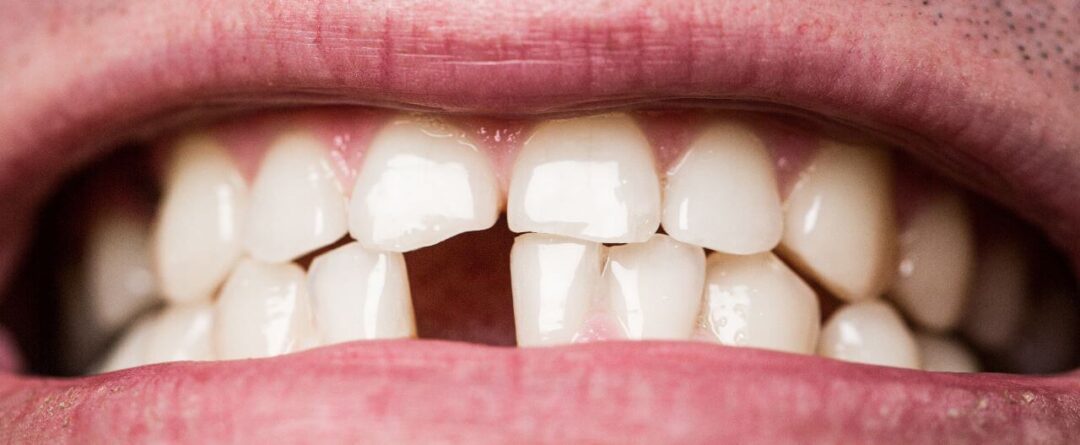
7. Maintenance and care of fixed prosthesis
Once you have undergone the process of getting a fixed prosthesis, it is crucial to prioritize its maintenance and care. Taking proper care of your fixed prosthesis not only ensures its longevity but also helps in preserving your oral health and regaining your beautiful smile.
Regular brushing and flossing play a significant role in maintaining the hygiene of your fixed prosthesis. Just like natural teeth, plaque and food particles can accumulate on the surface of the prosthesis, leading to the growth of harmful bacteria. Thus, it is essential to brush your prosthesis at least twice a day using a soft-bristled toothbrush and a non-abrasive toothpaste. Pay special attention to the gumline and the areas around the artificial teeth to remove any debris.
Flossing is equally important to clean the spaces between the artificial teeth. Use a floss threader or a specialized floss for bridges to effectively remove any food particles or plaque that may be trapped between the prosthesis and your gums. Regular flossing not only prevents gum disease but also helps in maintaining the integrity of the prosthesis.
In addition to regular oral hygiene practices, it is advisable to schedule regular dental check-ups. Your dentist will examine your fixed prosthesis to ensure its stability and make any necessary adjustments or repairs. These check-ups also provide an opportunity for your dentist to assess the overall health of your oral cavity and address any concerns or issues that may arise.
Avoid chewing on hard or sticky foods that could potentially damage your fixed prosthesis. Additionally, refrain from using your teeth as tools to open packages or bite into non-food items. Such habits can exert unnecessary pressure on the prosthesis and may lead to its loosening or even breakage.
Lastly, it is important to maintain a healthy lifestyle to support the longevity of your fixed prosthesis. Avoid smoking or excessive consumption of staining substances such as coffee or red wine, as these can cause discoloration or damage to the prosthesis. Adopting a balanced diet rich in vitamins and minerals will also contribute to the overall health of your oral cavity and enhance the longevity of your fixed prosthesis.
By following these maintenance and care tips, you can ensure that your fixed prosthesis remains in optimal condition, allowing you to enjoy the advantages it offers – a confident smile, improved oral function, and enhanced self-esteem.
8. Who is a good candidate for fixed prosthesis?
Fixed prosthesis, also known as dental implants, can be a life-changing solution for individuals facing tooth loss or severe dental problems. But who exactly is a good candidate for this innovative dental treatment?
First and foremost, individuals who have lost one or more teeth are potential candidates. Whether the tooth loss occurred due to trauma, decay, or periodontal disease, fixed prosthesis offers a reliable and long-lasting solution. It is important to consult with a dental professional who can assess your specific situation and determine if dental implants are the right option for you.
Another group of individuals who can benefit from fixed prosthesis are those with unstable or ill-fitting dentures. Dentures can often cause discomfort, difficulty in eating or speaking, and even self-consciousness. By opting for fixed prosthesis, patients can enjoy the stability and convenience of having permanent teeth that function just like natural ones.
Moreover, individuals with sufficient bone density in their jaw are ideal candidates for dental implants. The implant is surgically placed into the jawbone, and over time, it fuses with the bone through a process called osseointegration. This ensures a strong and durable foundation for the prosthetic teeth. However, even if your bone density is inadequate, there are various techniques such as bone grafting that can be employed to enhance the success of the implant procedure.
Additionally, good oral health is crucial for the success of fixed prosthesis. Candidates should have healthy gums and be committed to maintaining proper oral hygiene practices. Regular dental check-ups, brushing and flossing, and avoiding harmful habits such as smoking can greatly contribute to the longevity of the fixed prosthesis.
In conclusion, individuals who have lost teeth, struggle with ill-fitting dentures, possess sufficient bone density, and maintain good oral health are typically excellent candidates for fixed prosthesis. However, it is always recommended to consult with a qualified dentist or dental specialist who can evaluate your unique situation and provide personalized recommendations for restoring your smile with this advantageous dental treatment.

9. The process of getting fixed prosthesis
The process of getting fixed prosthesis is a transformative journey towards regaining your smile and restoring your confidence. It involves several steps that are carefully planned and executed by a team of dental professionals.
1. Initial Consultation: The first step is to schedule an initial consultation with your dentist. During this appointment, your dentist will evaluate your oral health, examine your teeth and gums, and discuss your goals and expectations for the fixed prosthesis. They will also explain the various options available to you based on your specific needs.
2. Treatment Planning: Once your dentist has assessed your oral health, they will develop a customized treatment plan tailored to your individual needs. This plan will outline the recommended procedures, timeline, and cost of the fixed prosthesis treatment.
3. Preparatory Procedures: In some cases, preparatory procedures may be necessary before the placement of the fixed prosthesis. This may include tooth extractions, gum disease treatment, or bone grafting to ensure a stable foundation for the prosthesis.
4. Impressions and Measurements: The next step involves taking impressions of your teeth, which will be used to create an accurate model of your mouth. This allows the dental laboratory to fabricate a customized fixed prosthesis that fits perfectly in your mouth. Your dentist will also take precise measurements to ensure proper alignment and aesthetics of the prosthesis.
5. Temporary Prosthesis: While your customized fixed prosthesis is being fabricated, your dentist may provide you with a temporary prosthesis to wear. This will help you maintain your smile and functionality during the waiting period.
6. Prosthesis Placement: Once your fixed prosthesis is ready, your dentist will schedule a final appointment for its placement. They will carefully adjust and fit the prosthesis to ensure optimal comfort and functionality. Your dentist will also provide you with instructions on how to care for and maintain your fixed prosthesis.
7. Follow-up Appointments: After the placement of the fixed prosthesis, regular follow-up appointments will be scheduled to monitor your progress and address any concerns or adjustments that may be needed. It is crucial to attend these appointments to ensure the longevity and success of your fixed prosthesis.
The process of getting fixed prosthesis requires collaboration between you and your dental team. With their expertise and guidance, you can regain your smile and enjoy the numerous advantages that come with a fixed prosthesis, such as improved aesthetics, enhanced speech, and the ability to eat and chew comfortably.
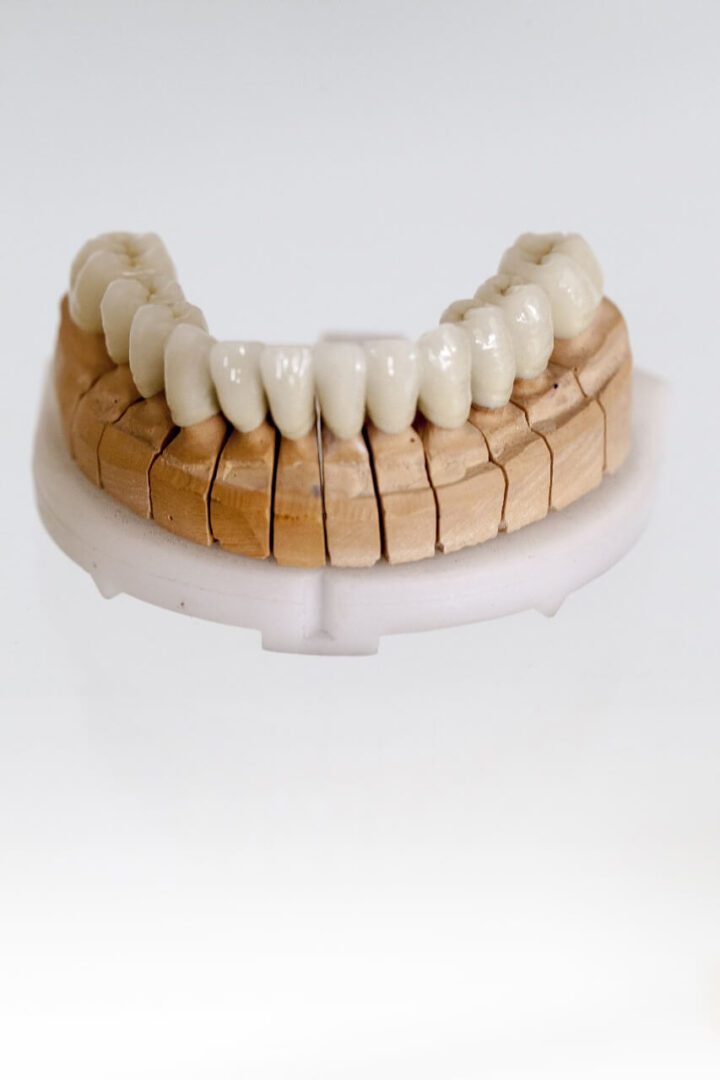
10. Frequently asked questions about fixed prosthesis
As you consider getting a fixed prosthesis to regain your smile, you may have some questions and concerns. Here are some frequently asked questions about fixed prosthesis to help address any uncertainties you may have:
1. What is a fixed prosthesis?
A fixed prosthesis, also known as dental implants or permanent dentures, is a dental restoration option that replaces missing teeth with artificial teeth that are securely anchored to your jawbone. Unlike removable dentures, fixed prostheses are designed to stay in place permanently.
2. How is a fixed prosthesis different from traditional dentures?
Traditional dentures are removable and can sometimes be uncomfortable or unstable. Fixed prostheses, on the other hand, are securely attached to your jawbone using dental implants, providing a more stable and natural-feeling solution. They also allow for better chewing and speaking abilities compared to traditional dentures.
3. Are fixed prostheses suitable for everyone?
Fixed prostheses are a highly effective solution for most individuals who have missing teeth or significant tooth loss. However, certain factors such as jawbone health and overall oral health may need to be assessed by your dentist to determine if you are a suitable candidate for this treatment option.
4. How long does the process of getting a fixed prosthesis take?
The process of getting a fixed prosthesis typically involves multiple stages and can take several months to complete. It includes an initial consultation, implant placement surgery, a healing period to allow the implants to fuse with the jawbone (osseointegration), and finally, the attachment of the prosthetic teeth.
5. Are fixed prostheses comfortable?
Yes, fixed prostheses are designed to be comfortable and mimic the look and function of natural teeth. Once they are securely in place, you should be able to eat, speak, and smile confidently without discomfort or worry about them slipping or shifting.
6. How do I care for a fixed prosthesis?
Taking care of a fixed prosthesis is similar to caring for natural teeth. Regular brushing, flossing, and professional dental cleanings are essential to maintain good oral hygiene. Your dentist will provide specific instructions on how to clean and care for your fixed prosthesis to ensure its longevity.
By addressing these common questions, we hope to provide you with a better understanding of fixed prostheses and their advantages in regaining your smile. Remember, consulting with a qualified dental professional is crucial to determine the best treatment plan for your specific needs and to answer any additional questions you may have.
